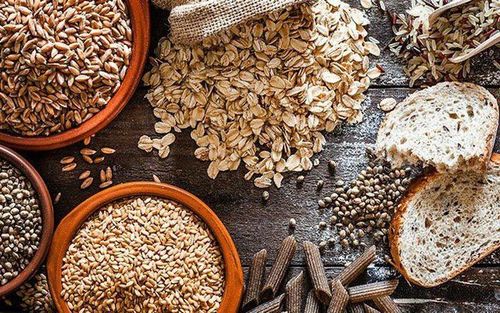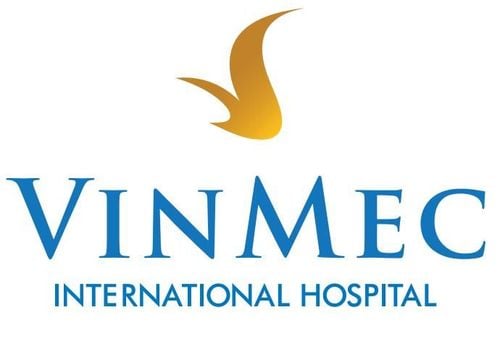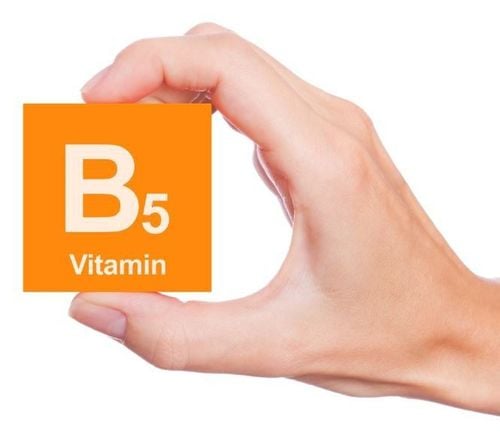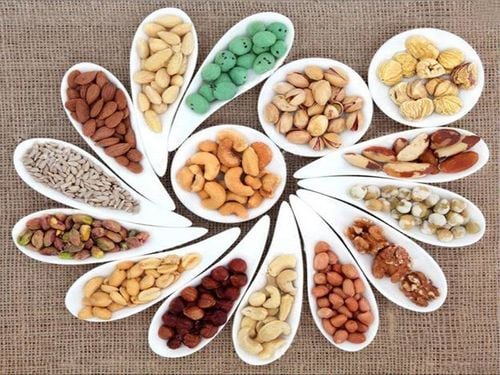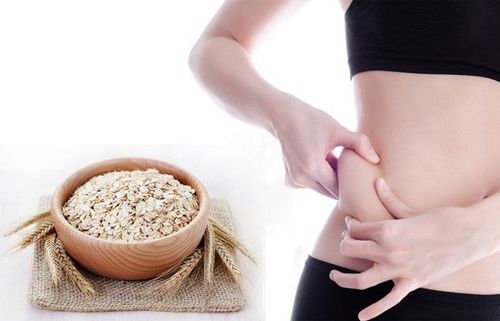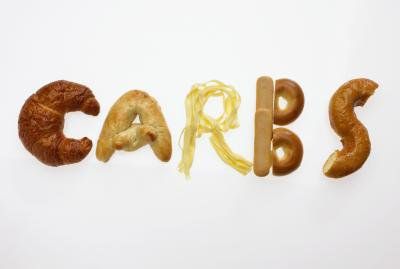This is an automatically translated article.
Carbohydrates are carbohydrates that are always recommended to cut if you follow a weight loss diet. This leads to the misconception that carbohydrates are the "enemies" of weight. However, it is not "bad" as we think, but on the contrary, carbs are good for physical and mental health.1. Carbohydrates
Disaccharides are two monosaccharide molecules linked together, such as: lactose, maltose, and sucrose. Lactose is a molecule made by linking a glucose molecule with a galactose molecule. Lactose is commonly found in milk. Saccharose is a molecule made by linking a glucose molecule with a fructose molecule. Saccharose is found in table sugar. It is usually the result of photosynthesis, when sunlight absorbed by chlorophyll reacts with other compounds in the plant.Polysaccharide Various polysaccharides act as food stores in plants and animals. They also play a structural role in plant cell walls and the tough outer skeleton of insects. A polysaccharide is a chain of two or more monosaccharides.
Glycogen is a polysaccharide that humans and animals store in the liver and muscles. Starch are glucose polymers made up of amylose and amylopectin. Rich food sources include potatoes, rice, and wheat. Starch is insoluble in water. Humans and animals digest these starches using the enzyme amylase.
Cellulose is one of the main structural components of plants. Wood, paper and cotton are mainly made from cellulose. Carbohydrates, also known as saccharides or carbs, are sugars or starches. They are the main source of food and also an important form of energy in the body of most living things. Two basic compounds make up carbohydrates:
Andehytes: are double bonded carbon and oxygen atoms, plus a hydrogen atom. Ketones: are double bonded carbon and oxygen atoms, plus two additional carbons. Carbs can combine to form polymers, or chains. These polymers can act as:
Long-term food storage molecules Membranes protect organisms and cells The main structural support for plants Carbohydrates are a component of most organic matter on earth. This substance is involved in many aspects of life.
There are many types of carbohydrates. These include monosaccharides, disaccharides and polysaccharides.
Monosaccharide: This is the smallest possible sugar unit. Examples include glucose, galactose or fructose. In it, Glucose is the main source of energy for cells. In human nutrition, they include: galactose (most readily available in milk and dairy products); fructose (mainly in vegetables and fruits.)
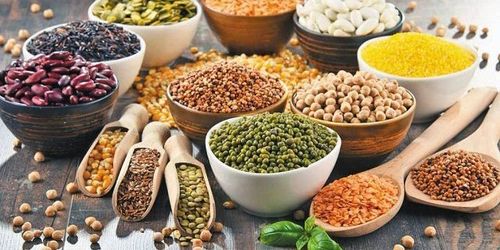
Carbohydrate là là thành phần của hầu hết các chất hữu cơ trên trái đất
2. Carbohydrates and human health
What is the function of carbohydrates? The Scientific Advisory Committee on Nutrition (SACN), a committee of independent experts has been asked by the government to clarify the relationship between dietary carbohydrates and health and make recommendations on community health. To this end, they looked at:Evidence on the role of dietary carbohydrates in colorectal health in adults and childhood; Evidence for dietary carbohydrates and cardiometabolic health including cardiovascular disease, insulin resistance, glycemic response, and obesity. Evidence relating to dietary carbohydrates and oral health; Terminology, classification and definition of dietary carbohydrates. SACN published its Carbohydrates and Health report with new recommendations including 5% of total dietary calories from free sugars and 30g of fiber per day.
To help put the recommendations into context, the British Nutrition Foundation (BNF) has developed a number of resources on the subject, including:
The 7 day meal plan shows an approach to meeting Responding to existing and new dietary recommendations Health and Free Sugar and Fiber Information Panel A resource for consumers who can discover the amount of sugar in foods when purchasing or consuming them.
2.1. 7 Day Meal Built by BNF
In a recent poll among visitors to the BNF website, respondents suggested that a better understanding of which foods contribute the most to our free sugar consumption, along with other Practical dietary tips suggest alternatives to high-sugar foods, which will be most helpful to help reduce their intake.The new SACN recommendations for fiber and free sugars can be achieved through a healthy, balanced diet with:
Meals based on starchy foods (primarily whole grains) seed); About eight servings of fruits and vegetables daily; Water, low-fat milk, unsweetened tea and coffee; High-fiber snacks (including nuts and seeds); Low-sugar snacks/desserts; Regularly choose low salt and use unsaturated fats (such as canola, olive or sunflower oils) for cooking and sauces. Many of the meals on the weekly plan are typical of meals cooked or prepared at home, along with a mix of fresh and processed ingredients. Items such as ready-made sauces are used in the recipes, as well as some prepared foods such as pizzas and soup boxes (for ease of modeling, we did not attempt to develop a plan. more reliance on pre-prepared meals).
While feasible in the context of other dietary guidelines for energy, protein, carbohydrates and fats, as well as vitamins and minerals, this dietary pattern is not typical of most people in Brother. Achieving new SACN recommendations is therefore a significant challenge and requires a significant change in consumer behaviour. Collaboration and collaboration is required from a wide range of stakeholders, including the food industry, health professionals, policy makers and regulatory agencies to raise awareness of the sources of supply. Free sugars, benefits and sources of fiber. Innovative food solutions from manufacturers and retailers may also be needed to help consumers adopt dietary patterns to meet these goals.
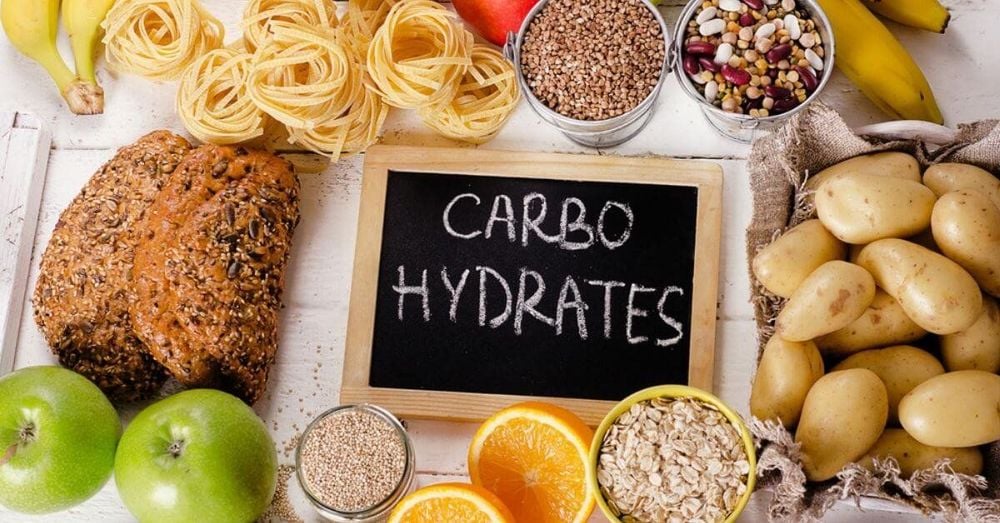
Bằng chứng về carbohydrate trong chế độ ăn uống và sức khỏe chuyển hóa tim
2.2. Sugar content in food
Approximate free sugars of foods that commonly contribute to UK adult free sugars:Free sugars per 100g or 100ml
Volume
Free sugars
(per portion)
Sandwich biscuits cream
31g
15g
4.7g
Digestive biscuits
17.7g
15g
2.7g
Lemon cake with cream or buttercream
42.5g
50g
21.3g
Chocolate cake without filling
29.6g
50g
14.8g
milk chocolate
46.7g
25g
11.7g
orange juice
8.6g
150ml
12.9g
lemonade
8.3g
330ml
27.4g
pumpkin
47.5g
50ml
23.8g
Fruit yogurt
9 g
125 g
11.25 g
Honey
75.5 g
20 g
15.1 g
Customers who have any questions about nutrition, can leave a question Ask questions in the ASK DOCTOR VINMEC section on the website. Questions will be consulted by the doctor and sent to you as soon as possible.
Please dial HOTLINE for more information or register for an appointment HERE. Download MyVinmec app to make appointments faster and to manage your bookings easily.
The article is referenced at the source: nutrition.org.uk



